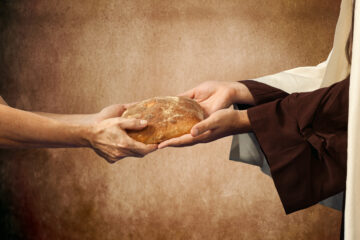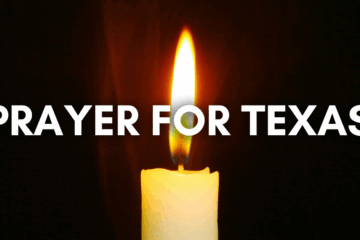Archimandrite Varnavas Lambropoulos
When the pagan Avtolykos once asked Saint Theofilos of Antioch to show him the god he believed in, the latter replied: ‘Show me a person and I’ll show you my God’. The saint’s answer reminds us that in the history of human civilization, theology and anthropology are intertwined. Each person’s religious convictions have a decisive effect on their formation and their whole attitude to life. The Christian, Theofilos, wanted to point out to the non-Christian, Avtolykos, that, for us, a human person is an image of the one true God and that this image is true to the extent that we strive to be like Christ, who was God and human.
‘Honorable is the death of his saints’
We might say, then, that, at the recent great feast of Pentecost, the Church ‘showed us its God’ and that today, on the feast of All Saints it ‘shows us its person’. With Pentecost the task of the divine dispensation is completed. The Holy Spirit made manifest to us ‘all the truth’ regarding who God is, and bestowed on us the whole complement of divine gifts, through which we can be like him.
It’s worth noting that the saints, as prototypes of people in the Church, didn’t derive their glory from scientific achievements, contributions to society or to a colorless and bland morality but to their victorious struggle, in Christ, to face up to evil. Needless to say, this was a battle which as a rule ended with their death as martyrs. In modern culture- and not only- we hide death as though it were dishonorable and dirty. The psalmist tells us, however, that ‘the death of his saints is honorable before the Lord’. And it’s honorable because it’s witness to the truth (Jn. 18, 37), it’s testimony to the truth of Christ. It’s witness not to theories, but to facts; and, in particular it’s testimony to the foundation of our faith: Christ’s resurrection.
According to Saint Paul, the first denier of the resurrection and later its most ardent proponent, the martyrs suffered martyrdom in order to achieve a resurrection better than being restored in this life. They scorned not only all the pleasant things in this life- they were ‘destitute, persecuted and mistreated’ – but even life itself. They made a bold statement that ‘our present sufferings are not worthy to be compared to the glory that will be revealed in us’ (Rom. 8, 18). For this reason, the world was not worthy of these saints nor did it bear comparison to them. To the degree that they saw and experienced the first coordinates (present sufferings- future glory), to the same extent they knew incomparably well the second (world- saints).
The martyrs and their calling
It has been pointed out that Christ didn’t look for propagandists; he wanted witnesses. The faith can’t degenerate into popular slogans. The faith is confessed by witness, and witness is the opposite of propaganda. Witness is a centripetal force, because it radiates. Bergson had understood this when he wrote about the saints: ‘We don’t need the saints to do anything else but exist. Their very existence is a calling’.
In today’s Epistle reading, Saint Paul answers the question: ‘To what do the saints call us?’. They call upon us to struggle against our passions: ‘let us also lay aside every weight, and sin which clings so closely’. The image is taken from the gymnasia, where competitors took off all superfluous clothing so as to enter the match unencumbered. According to Saint Theofyllaktos, everyday concerns, which we multiply through our greed, create a mass of vanities, which do nothing towards leading us upwards. An even worse fall is caused by ‘besetting sin’, which is begotten because very easily ‘the eye is delighted, the hearing is attracted, touch is stimulated, the tongue rambles and thought has a proclivity towards what’s worst’.
Divine tight-rope
All of this recalls not so much an athlete who competes on solid ground, but rather an acrobat trying to walk on a tight-rope. When a young acrobat was asked how he managed to walk on a rope for so long, he said he trained by gazing at his experienced acrobat father at the other end of the rope. This is exactly what we’re invited to do by Saint Paul, the ‘acrobat’ of the faith: to keep our eyes fixed on Christ, the originator and perfector of our faith. When he suffered dishonorable death on the cross, Christ became the first martyr of the true faith, since- in order to sit, in the flesh, at the right hand of the throne of his heavenly Father- he consented to ‘sit’ first on the tree of the cross, disregarding the shame of it.
It’s difficult for us today to understand what shame it was that Christ disregarded. If we’re to feel the weight of this phrase, we have to strip the cross of all the splendor with which the King of Glory endowed it. We have to see it only as the means of punishment, the most painful and shameful execution, reserved for the dregs of society. Christ, however, considered this cross his greatest glory; and All Saints made it their weapon and glory.
Source: pemptousia.com




0 Comments